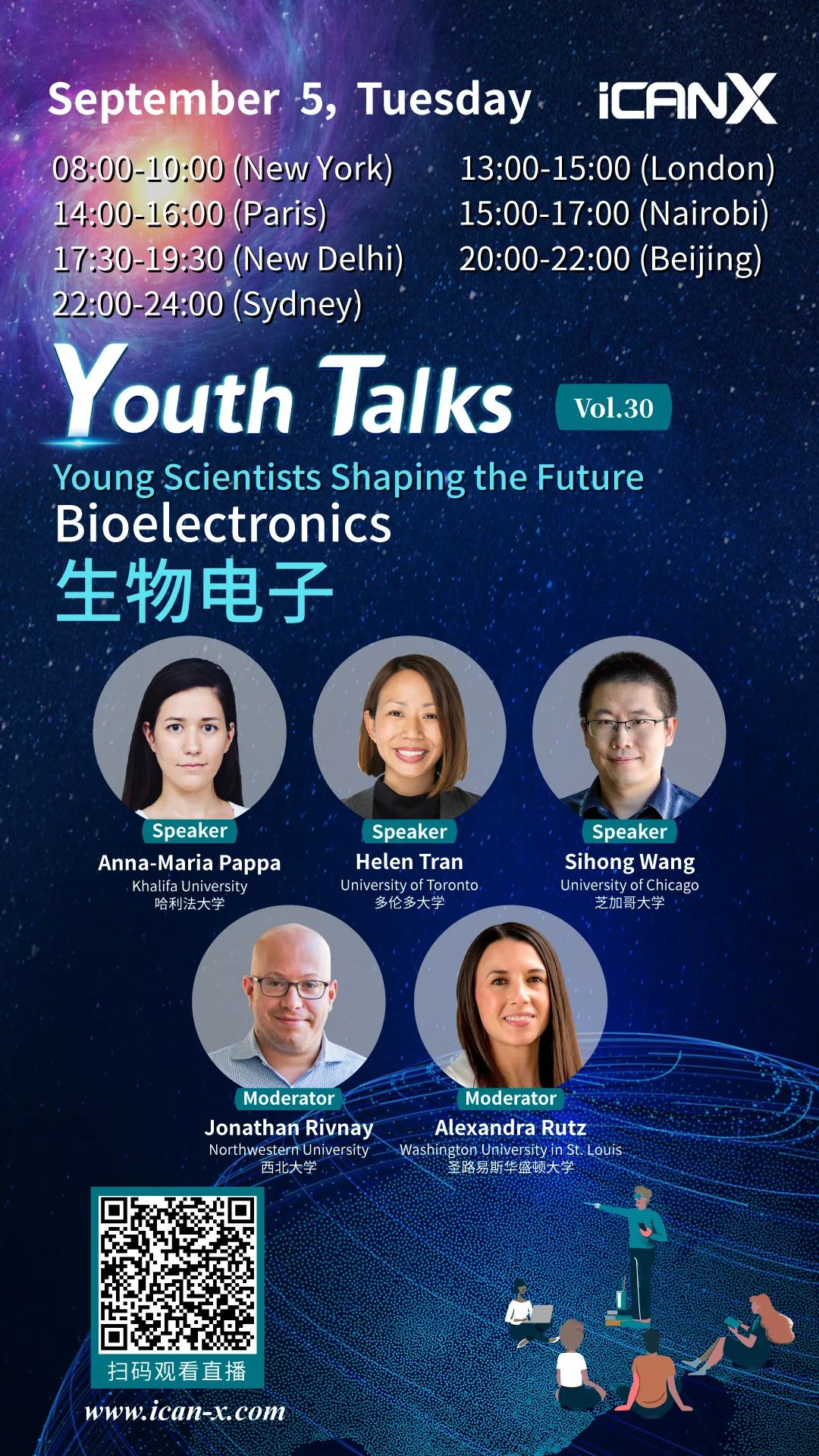Speaker: Anna-Maria Pappa, Khalifa University
Time: 20:00 p.m., September 5, 2023, GMT+8
Venue: Scan the QR code to watch online
Abstract:
The development of medical devices that comply with the soft mechanics of biological systems at different length and complexity levels is highly desirable. With the emergence of conducting polymers exciting directions opened up in bioelectronics research, bridging the gap between traditional electronics and biology. With the ultimate goal of fully integrated devices, organic bioelectronic technologies have been heavily explored the past decade resulting in novel materials/device configurations. Multiplexing capability, ability to adopt to complex performance requirements in biological fluids, sensitivity, stability, literal flexibility and compatibility with large-area processes are only some of the merits of this technology for biomedical applications. A recent example of a bio-integrated electronic device, the BiOET, is based on polymeric semiconductor technology and is fabricated using nano/micro-fabrication methods in conjunction with synthetic biology approaches to incorporate hierarchically organized biological models of the cell membrane. Despite their significance, cell membranes are still an underexplored target for studying the mechanisms of diseases or drug therapies. Cell-free commercially available technologies for cell membrane studies have been limited to synthetic membranes that lack the inherent complexity found in the membrane of the cell. In this talk I will describe a method to create native cell membranes, using vesicles derived from live cells, on top of conducting polymer- based microfabricated electrodes and transistors. The activity of transmembrane proteins in response to different stimuli can be electrically monitored, offering a direct means to characterize drug toxicity or potency at the critical first contact point: membrane interaction.
Biography:
Anna-Maria Pappa is an Assistant Professor at the Department of Biomedical Engineering at Khalifa University and visiting scholar at Cambridge University. Prior to this, she was the Oppenheimer Research fellow at Cambridge University and the Maundslay-Butler Fellow at Pembroke College. She received her PhD in Bioelectronics in 2017 from Ecole des Mines de St Etienne. Anna-Maria is currently leading the Bioelectronics and Biosystems on chip (LAB-BBC) group focusing on developing cutting edge technologies for next generation miniaturized sensors with applications in healthcare and environmental science. She is an associate editor in Scientific Reports, Frontiers in Electronics and serves the early career editorial board of Applied Physics Letters. Anna-Maria has received several awards for her research including the L’Oreal-UNESCO Women in Science award, being listed in the Innovators under 35 MIT technology review and several awards in the area of entrepreneurship and innovation with a recent example the WTI-resilience challenge award in KAUST.
Source: iCANX
